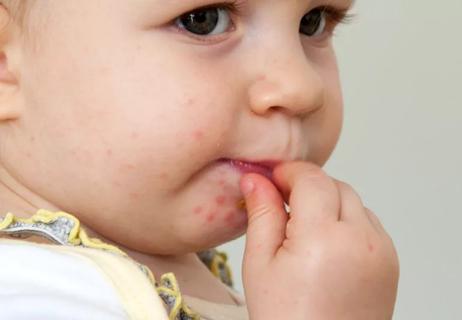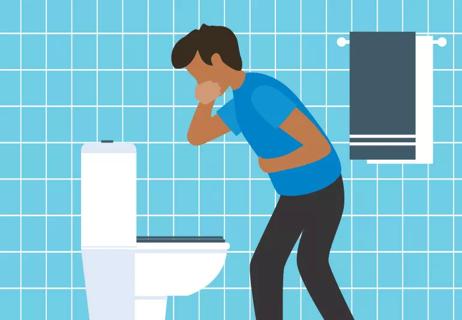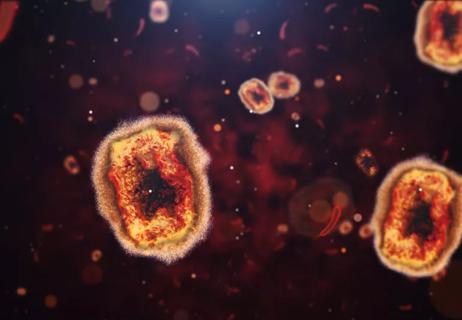Transmission typically involves skin-to-skin contact, but the virus can also linger on surfaces

Terms such as “outbreak” and “public health emergency” appear regularly in headlines about mpox (formerly known as monkeypox). Every day seems to bring news of rising case counts — maybe even in your hometown.
Advertisement
Cleveland Clinic is a non-profit academic medical center. Advertising on our site helps support our mission. We do not endorse non-Cleveland Clinic products or services. Policy
It’s enough to leave you worried and wondering whether you’re at risk of getting randomly infected by the virus. How exactly does mpox spread? And is this another COVID-19 situation?
For answers, we turn to infectious disease specialist Kristin Englund, MD.
Mpox can be transmitted in a number of different ways, but it’s most commonly passed between people through skin-to-skin contact, explains Dr. Englund.
A primary symptom of the disease is a skin rash that builds into pus-filled blisters before crusting over. You’re at risk of getting mpox if you touch or rub against those sores or scabs on a person who is infected.
The virus can also spread through bodily fluids exchanged during more intimate and prolonged physical contact, such as kissing, cuddling or sex.
“In general, it’s going to take close contact for monkeypox to be spread,” says Dr. Englund.
Mpox isn’t considered an airborne virus spread through a cough, sneeze or talking. But research on that is ongoing, according to the Centers for Disease Control and Prevention (CDC).
“At this point, we don’t believe it’s being passed through respiratory secretions like we talked about so much with COVID-19,” says Dr. Englund.
As a precaution, though, the CDC recommends that people with mpox wear a mask when in close contact with others while isolating at home. Ditto for those near the person who is infected for more than a brief encounter.
Advertisement
It’s possible … but this answer deserves a more detailed explanation to really understand the potential risk, says Dr. Englund.
Let’s start with the basics: The CDC reports that the mypox virus can survive as long as 15 days on surfaces. That’s not a surprise. Other viruses closely related to mpox have been found to survive in an environment for weeks or even months.
But here’s the question: Does that present a high risk to you as you go through your daily activities?
The answer: It’s doubtful.
“Monkeypox isn’t something that’s spreading from handling mail or going to the grocery store and putting your hands on a cart,” notes Dr. Englund. “It’s going to take more prolonged and more direct contact for the virus to be shared.”
Now, if you’re living with someone with mpox, the risk level obviously rises and it’s best to be cautious. The CDC recommendations include:
The CDC offers three basic recommendations to protect yourself during the mpox outbreak:
Believe it or not, the current outbreak is the second reported in the United States. The first occurred in 2003, with 47 cases reported in the Midwest. (That was the first time human mpox was found outside of Africa, where the disease was discovered in 1958.)
All of the 2003 cases stemmed from contact with pet prairie dogs, which were infected after being housed near animals imported from Ghana that had the virus.
A person can get mpox from an infected animal through:
It should be noted, too, that there has been a reported case of a human giving their pet dog mpox. Dr. Englund says it’s recommended that anyone with mpox stay away from household pets while infected.
There is an mpox vaccine, but supplies are extremely limited. Given the low supplies, the CDC recommends that available mpox vaccines be directed to people who’ve been exposed to the virus or are more likely to get the virus.
Advertisement
The U.S. Food and Drug Administration (FDA) took action in August to change how the vaccine is administered to increase the number of available doses.
Mpox has also been seen in a somewhat limited group — primarily, men who have sex with men — during the outbreak. But it should also be noted that the disease isn’t limited to one population.
“At this point in time, though, the general population does not need to go out and get the monkeypox vaccine,” says Dr. Englund.
In a word, no. “Monkeypox is not nearly as easily spread as COVID-19,” states Dr. Englund. “We’re not looking at a repeat of what we’ve been living through with the pandemic over the last few years.”
Still, she emphasizes that it’s important to be aware of mpox and whether there are elevated case counts in your community. “Educate yourself on the risks,” she advises, “but it’s not something that should bring a panic.”
Advertisement
Learn more about our editorial process.
Advertisement

Yes, but symptoms can be easy to miss

You can catch this highly contagious virus through contaminated food, water, droplets and more

Use a bleach solution to sanitize surfaces like doorknobs, counters, toilets and light switches

Start slowly with clear fluids, and then move to bland, easy-to-digest foods

It starts off like a cold and then progresses to a rash that can last about 10 days

Time of onset and duration of symptoms tell the story

It’s not just smoking and genetics that can increase your risk of cancer

Mpox (monkeypox) is transmitted through skin-to-skin contact, including sex

Wearing a scarf, adjusting your outdoor activities and following your asthma treatment plan can help limit breathing problems

Your diet in the weeks, days and hours ahead of your race can power you to the finish line

When someone guilt trips you, they’re using emotionally manipulative behavior to try to get you to act a certain way